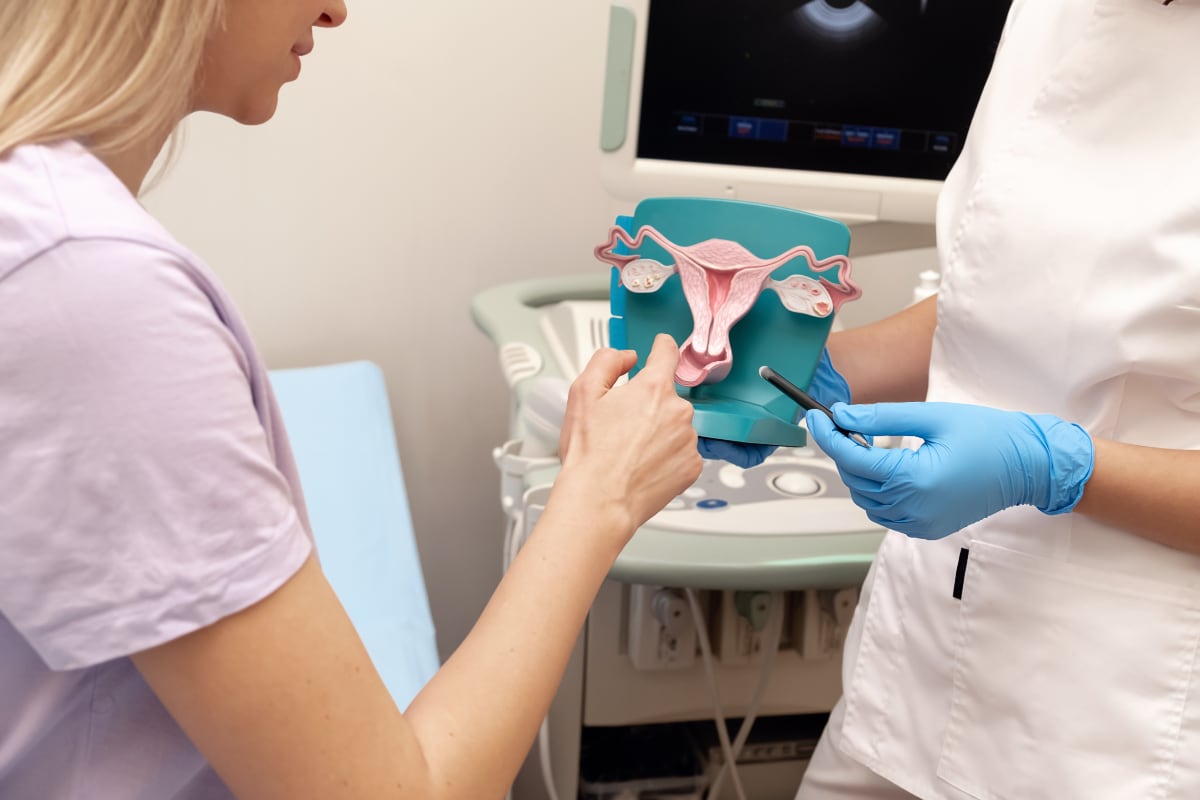gynaecologist Perth WA
When seeing your gynaecologist to discuss a concern, a condition or any type of gynaecological or fertility test, many women find it useful to prepare. As much as your gynaecologist will aim for clarity and good communication…you don’t want to have one of those “I wish I had asked” moments on the way home.
Preparing for gynaecologist visit
Write your questions down
You wouldn’t book a consultation with your gynaecologist without a reason, right? It’s important that you are clear about what you would like to know or ask. I often hear patients say that they forgot to ask questions because they were too nervous.
“I acknowledge that going to the gynaecologist might be daunting. That’s why our team did such a great job making consultation rooms at Woom as welcoming and calming as possible. I also will do everything in my power to make you feel relaxed and at ease."
In saying that, it’s good to prepare when you go to the gynaecologist (and any doctor, for that matter). I want you to feel empowered and well-informed after you leave my rooms, and writing down your questions will definitely help. Keep reading, because I have added a list of real-life frequently asked questions that may inspire you.
Bring the dates of your last period
I will ask a bunch of questions and the dates of your last menstrual cycle will most likely be one of them.
“Jot down the start and end date of your last cycle. If you have dates of previous months, bring these too. This will help us see a pattern."
FAQs gynaecologist Perth WA
13 questions to ask your gynaecologist
1. Why is it painful when I have sex?
There are many things that can lead to painful sex. For example, infections, lack of lubrication or the wrong lubrication, hormonal changes or side effects of medications to name just a few. It’s important to ask questions and patients tell me that at Woom we manage to create a safe space to ask these questions. The last thing I want is that you feel embarrassed when we discuss this. Painful sex is common and it’s a matter of finding out what is causing your discomfort or pain.
2. What’s the best birth control method for my situation?
A lot of women have questions about birth control. From ‘which method is the best for my situation?’, all the way to ‘do I need birth control?’. And what if you want to try for a baby 6 months from now? I will ask questions and explain your different options so you can make an informed decision.
3. When is a mammogram recommended?
The answer depends on your family history and your age. In Australia, women over 40 can have a free mammogram every two years. If you have a family history of breast cancer and you are concerned, I will look into your options and we’ll discuss what is best for you.
4. How do I perform a breast self-exam?
I will explain this during your consultation. Regular breast self-exams may help detect changes, and this may lead to early breast cancer detection. So it’s important to know how to perform a breast exam.
5. How often do I need to be tested for STIs?
If you are sexually active (ie oral, vaginal or anal sex) you may be at risk of an STI. It’s recommended to test every 6 to 12 months, even if you don’t have any symptoms. I also advise you to get tested if your partner recently had an STI, if you have a new partner or have frequent changes in partners.
6. What’s the best way to protect myself from STIs?
Condoms can reduce your risk but won’t totally exclude it. Regular testing and honesty with your partner(s) will help reduce the risk too. Understand that some sex practices increase the risk; I will explain this during our consultation. And get vaccinated; vaccines are available to help protect against HPV and hep B.
7. Why do my periods hurt so much?
For some women, menstrual pain goes beyond cramps and can be very painful. This can be a sign of endometriosis. But what are very painful cramps, I hear you ask? Generally, they interfere with your daily life (for example, to an extent where you are not able to work or do normal activities), the cramps won’t go away with over-the-counter painkillers and they are accompanied by heavy bleeding and clotting.
8. How much should I bleed during my period?
Most of my patients are surprised when they hear the answer: 30 to 40ml in total, which is 6 to 8 teaspoons. A heavy period is a blood loss of 80 ml or more. But how do you measure this, you may wonder? That is difficult indeed. Typically, menstrual cups have volume measurements and may help you estimate how much fluid you are losing. If you are worried about your periods and how heavy they are, I recommend trying and measuring these volumes, and book a consultation to discuss your findings.
9. I don’t feel like having sex. Is this normal?
If you are concerned by your low sex drive, it’s important to mention this to me. There is a whole range of reasons why libido may be low, from chronic conditions, to low hormone levels, medications, pregnancy, menopause, etc.
10. I have a lot of vaginal discharge. Is this normal?
Vaginal discharge can be 100% normal and changes throughout the monthly cycle. There is only reason for concern if it is causing discomfort or pain, or if suddenly there is a change in texture, colour, smell or amount.
11. How often should I have a pap smear test?
In Australia, the pap smear test has been replaced with the cervical screening test. That is because the pap test only looked for cell changes in the cervix, whereas the cervical screening test also looks for HPV which can lead to cell changes in the cervix and is better at preventing cervical cancer. Women aged 25 to 74 years of age are invited to have a cervical screening test every 5 years.
12. When I sneeze or laugh I leak some urine. Is this normal?
You might be concerned about having stress incontinence when you leak some urine every time you laugh or sneeze. Pregnancy, childbirth, certain medications and obesity sometimes cause the pelvic muscles to weaken. There are several ways of treating stress incontinence which I will discuss with you during consultation.
13. I am 54 and still have regular periods. Is this normal?
Menopause means the end of ovulation. According to the Australasian Menopause Society the average age is 51 and we consider it normal when it happens between the age of 45 and 55. If you are concerned, please book a consultation so we can investigate what is going on.
Dr Tamara Hunter, gynaecologist Perth WA
Passionate about women’s health
I am here to help!
As a Perth gynaecologist and fertility specialist I have helped hundreds of women and young girls and I’m passionate about helping you too.
My websites, this one and thewoom.com.au, provide heaps of information which I hope is helpful to you when you have questions about women’s health.
I also do a weekly Q&A on my Instagram profile so follow me there if you have a question that you want me to answer. Here are my profiles: @drtamara.hunter and @woom.womenshealth.
And of course, if you do want to see me in person, I encourage you to call my practice or send an email.


